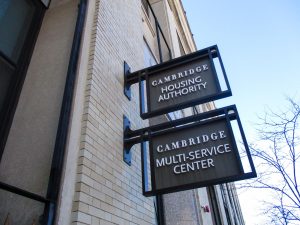Colleges Change Their View on Standardized Testing During Pandemic
October 4, 2020
The coronavirus has affected the education system greatly, both in the United States and globally. Schools have moved to online learning, and many standardized tests have been canceled or rescheduled. In the United States, the College Board: the organization responsible for the distribution of both Advanced Placement (AP) and Scholastic Assessment Test (SAT)—has canceled administrations of the SAT exams in many locations until June 2021, prompting universities and colleges to consider suspending the standardized test or making it optional in admissions to their schools.
Due to these changes, most universities and colleges in the US have decided that standardized tests are not a requirement in their application form, understanding that high school seniors will have a very limited amount of time to take the SATs, and do well on them, in time for applications. Birikti Kahsai ’23 noted that “SATs are so inaccessible this year, if [colleges] still wanted them to be part of the admissions criteria, they would give advantage to students who did not deserve it.”
Some colleges and universities are going as far as phasing out the SAT and ACT from their applications for the next four years altogether, making arguments that the SATs should not be one of the major standards in the application process, deciding instead to focus more closely on individuals’ essays. Felix Prasanna ’22 explained that “People’s stories and essays will be a great way to show their uniqueness and why they are fit for a certain school, something that a test score cannot do.”
Moreover, colleges and universities are also receiving pressure to drop SAT and ACT requirements from a group of students known as “The Students’ Voice.” This non-profit group is calling for colleges and universities to adopt test-optional policies for the fall, with the campaign using the hashtag, “#TestOptionalNOW.” A growing number of students have been joining the movement, arguing that the SAT is not a true reflection of their academic abilities. Ethan Kellog ’22 told the Register Forum, “The intense studying required of many in this test-based system subtracts from the productive and more decisive metrics of extracurriculars and community service.”
Research has proven that students coming from wealthier backgrounds are more likely to perform better in the SATs. According to an article published by The Washington Post, a 2015 analysis proved that the highest-scoring students came from families who had an income of more than $200,000. Federal prosecutors in charge of investigating the case confirmed that most of the students who took part in the scam cheated their way through the SAT to get good scores.
According to a 2013 report from ResearchGate, it was found that Hispanic and African American students scored lower than their Asian and white peers. Nuriel Vera DeGraff ’22 commented, “For the SAT to become a more accurate assessor of academic strength, it would have to be more culturally inclusive.”
With this in mind, the Stanford Undergraduate Admission website claims that test scores do not directly correlate with success on campus, and thus another reason why SATs should not be weighted so heavily in the application process.
While the test-optional and test-flexible policies will not end the achievement gap observed in the education system, research shows it could be a step in the right direction.









